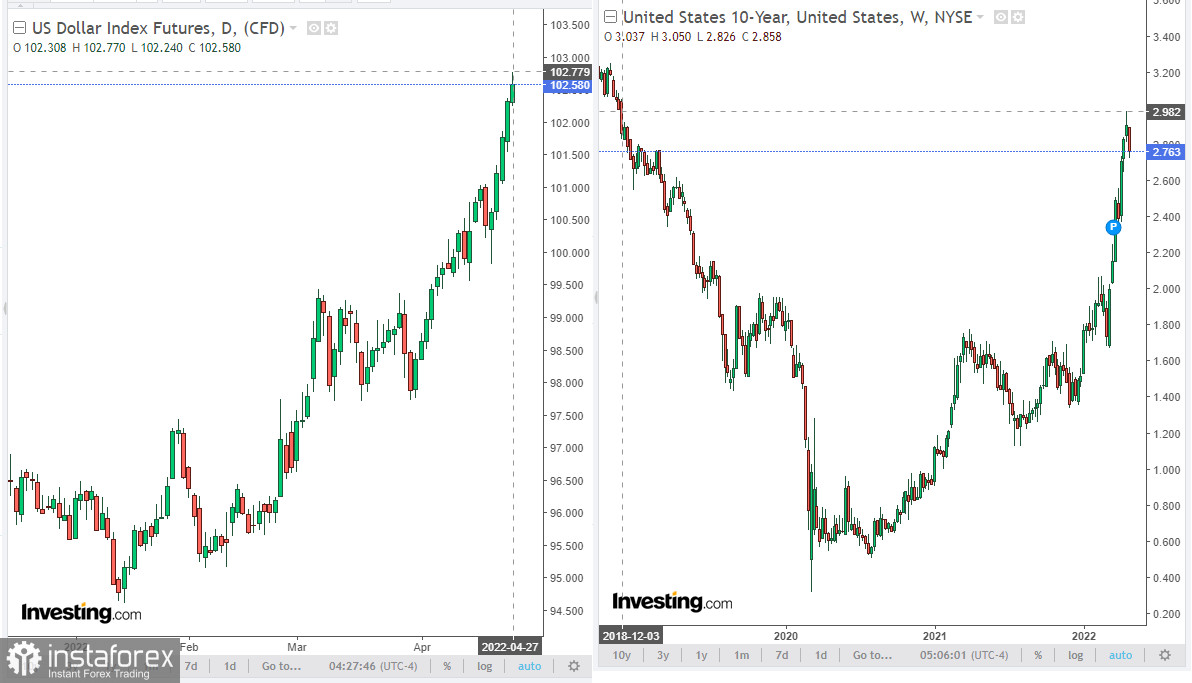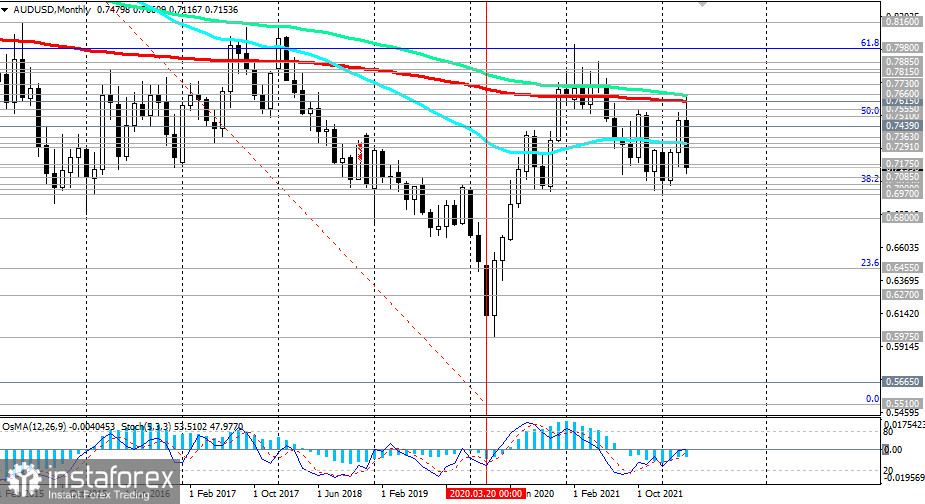Fresh US macro data released on Tuesday pushed the dollar to new heights.
New orders for US durable goods in March indicated an overall increase of 0.8% after a decrease of 1.7% in February, and the volume of orders for durable goods excluding transport increased by 1.1% (against a decrease in February by 0.5% and forecast growth of 0.6%). The growth of indicators indicates the confidence of American consumers. Despite the fact that the consumer confidence index from the Conference Board, also published yesterday, fell to 107.3 in April (against the March value of 107.6), it remains high and indicates continued economic growth in the 2nd quarter and the propensity of households to spend money, which is one of the key drivers of economic growth in the United States.
The composite manufacturing index in the US Mid-Atlantic region rose to 14 in April from 13 in March, exceeding economists' forecast (index value of 10), indicating an increase in activity in the Richmond Fed's area of responsibility, which includes Virginia, North Carolina, South Carolina, the District of Columbia, Maryland and most of West Virginia.
In the short term, the dollar may receive support from several factors, economists say. These are, first of all, fears related to the aggressive tightening of the Fed's monetary policy. The yield on 10-year US government bonds rose last week to 2.981%, the highest level since December 2018. Investors sell government bonds in anticipation of rising interest rates. Investor concerns about the latest strain of Covid-19, the prospects for global economic growth amid the military conflict in Ukraine, leading to risk aversion and increased demand for safe-haven assets, are also supporting the dollar.

Apparently, the dollar index (DXY) may soon exceed a two-year high and rise above 103.00. At the time of writing, DXY was near 102.58, just below today's high of 102.77.
Market participants are looking forward to the May meeting of the Fed, at which its leaders are likely to tighten the existing parameters of monetary policy and raise interest rates by 50 basis points, as well as announce the start of reducing the central bank's balance sheet.
Meanwhile, the Australian dollar made an attempt to strengthen against the US dollar today. The reason was the publication by the Australian Bureau of Statistics (at 01:30 GMT) of the RBA report with inflation data in Australia in the 1st quarter of 2022. The consumer price index (CPI) increased by 5.1% (against the forecast of growth of 4.6% and 3.5% in the previous quarter).
The trimmed mean inflation rose 3.7% (YoY) after rising 2.6% in Q4 2021, exceeding the forecast (3.4%) and RBA-defined target range of 2%- 3%.
The next RBA meeting is scheduled for May 3. And yet, the central bank is likely to stick to a wait-and-see attitude for the time being, waiting for the quarterly report on wages and GDP dynamics to be released in mid-May (data will be released in early June). In addition, there is now a federal election campaign going on in Australia and the RBA will likely want to avoid political complications.
Despite the fact that since the beginning of the month the AUD/USD pair has fallen by almost 5.0%, economists believe that it could fall to 0.7000 due to concerns about the economic consequences of coronavirus lockdowns in China (this country can significantly reduce the consumption of raw materials and energy, including iron ore and coal supplied from Australia), the domestic political situation in the country (the upcoming parliamentary elections may lead to a change of power due to the decrease in popularity among the population of the ruling coalition of Prime Minister Scott Morrison), as well as against the backdrop of rising inflation, while the RBA has so far refrained from tightening monetary policy.

 English
English 
 Русский
Русский Bahasa Indonesia
Bahasa Indonesia Bahasa Malay
Bahasa Malay ไทย
ไทย Español
Español Deutsch
Deutsch Български
Български Français
Français Tiếng Việt
Tiếng Việt 中文
中文 বাংলা
বাংলা हिन्दी
हिन्दी Čeština
Čeština Українська
Українська Română
Română

